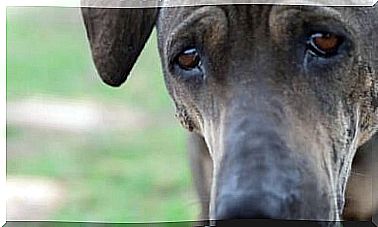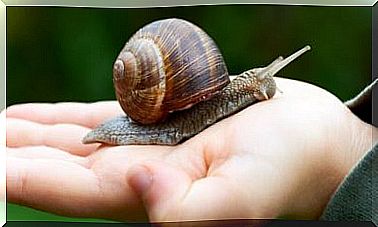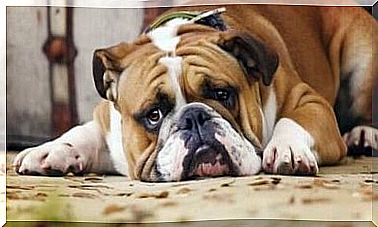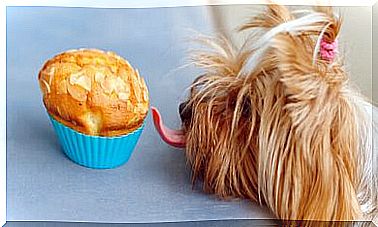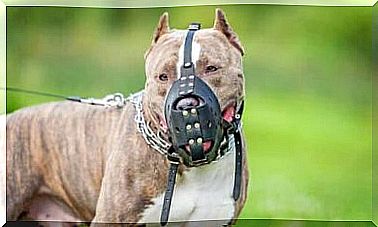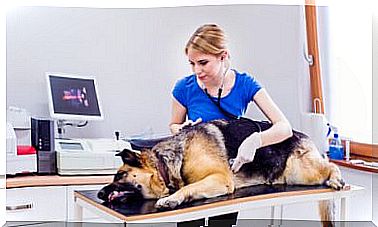Horse Fly: How To Take Care Of Your Dog
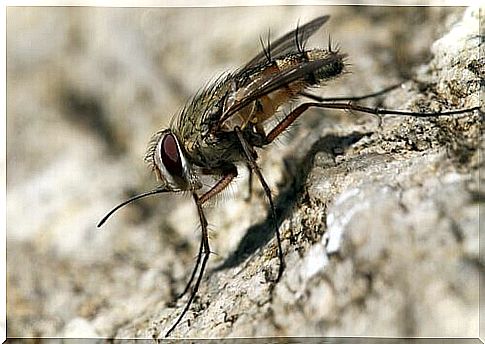
The horse fly ( Stomoxys calcitrans ) is a type of hematophagous insect with parasitic habits. As the name suggests, it lives mainly in fields, farms and rural areas. In this article we will talk about how to treat your dog when attacked by horse fly.
Usually, these insects settle in animals living in stables or in their surroundings. Although they prefer to infect cows and horses more, they also affect dogs quite frequently. Today we will talk about the horse fly and how to protect your dog from its attack.
What is the horse fly?
The horse fly belongs to the same family as the house fly, which we see in large cities. However, it belongs to the Stomoxys subfamily , where we find about 20 biting flies. In fact, it differs from the house fly for its slightly larger size and for its stinging apparatus.
The most salient feature of these species is precisely the proboscis, also known as the “stinging-sucking mouth apparatus”. When the insect uses it to sting, we see that its position is at an angle to the surface. It is an anthropophilic species, whose survival and habits are associated with the human being.
In general, these flies choose to sting their “victims” in the most defenseless or hard to reach parts of the body. In dogs, the ears, snout and paws are the areas where we most commonly find their bites. Although rare, they can also bite humans and wild animals.
How does horsefly affect dogs?
In principle, the horsefly bite causes annoying pain in the dog. The areas affected by these insects tend to become inflamed, bleed and generate a wound and scab.
In addition, animals that are bitten are more vulnerable to developing a secondary infection.
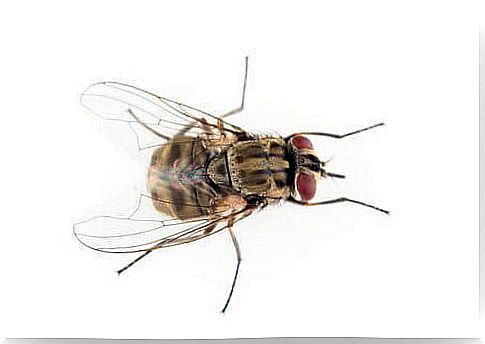
Another risk is that the horse fly acts as a vector for various pathogens. In this way, its bite is able to transmit a series of diseases to the affected animal. It can also cause severe anemia and malnutrition.
However, the biggest danger of these parasitic insects is that they usually bite massively, which generates an epidemic on the dog’s body. Upon sensing the presence of a bite, nearby female flies quickly approach the sting and lay their eggs.
To develop properly, the horsefly larvae must feed on organic matter. Once inside the dog’s body, the worms begin to feed on the tissues.
Due to the serious risks that can be generated, it is essential to treat the horsefly bite quickly, to avoid serious or irreversible damage to the animal’s health.
Horse fly: how to treat your dog
If your dog is bitten by the horse fly, the first step will be to wash the area affected by the bite and the wound as soon as possible with clean water and mild or antibacterial soap. Hence, it is recommended that you take your dog to the vet immediately to check for other bites and establish appropriate treatment.
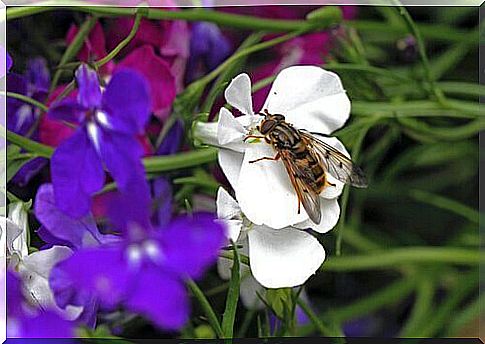
At the clinic, the veterinarian can perform a physical examination and request some tests to check the health of your dog.
In addition, he may prescribe an antibiotic cream to prevent the wounds from becoming infected. In the event that an ongoing infection is diagnosed, antibiotics will likely be administered orally or venously.
It will be important to observe the evolution of the health picture of our pet. The main symptoms could be: fever, swelling, wounds or scabs on the skin, but also an unpleasant smell, loss of appetite, lethargy and the presence of larvae.
For this reason, it is important to take your pet to the vet immediately.
How to prevent your dog from biting?
To take care of your pet’s health and avoid horsefly bites, prevention is essential. First, it is important to offer adequate preventive medicine to our dogs throughout their lifetimes.
In addition, complete and balanced nutrition, physical and mental stimulation, vaccines and deworming will help strengthen your dog’s immune system. It is advisable to make periodic visits to the veterinarian, which will be essential to ensure optimal development and state of health.
Repellent products will help ward off horseflies and other harmful insects. In pet stores, you can find repellent sprays or creams, as well as insecticide-based collars.
In summer and during walks in rural areas, it is important to pay particular attention to the presence of these insects, to avoid their bites.
